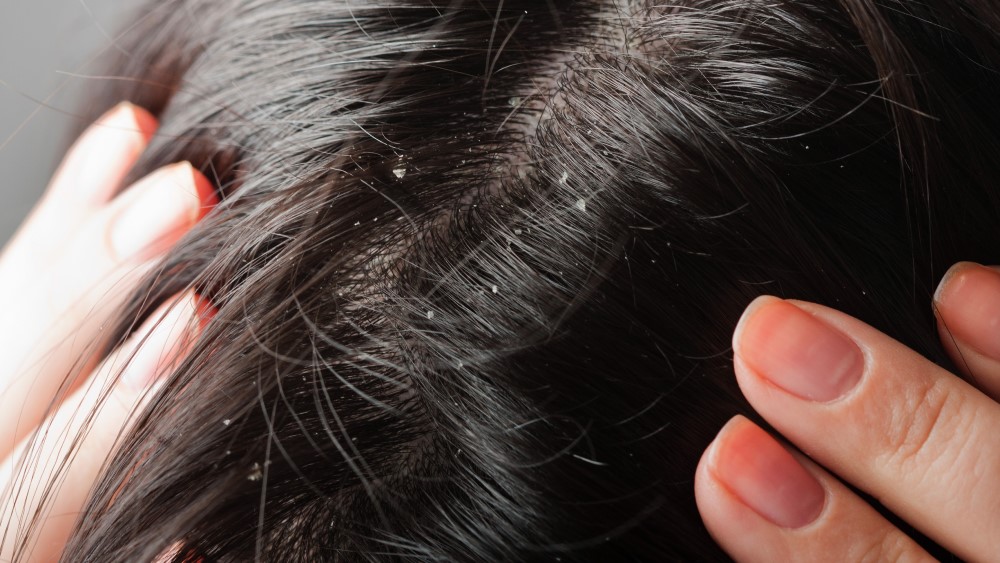What causes dandruff?
Dandruff is commonly caused by an overgrowth of a certain type of yeast called ‘malassezia furfur’. If you are prone to dandruff (and over 70% of the population is) you can only control it as and when it occurs. There is a misconception that dandruff is caused by a dry scalp, when in fact the flakes are more likely to be oily than dry. So do not rub oil into your scalp to remove dandruff - you’ll only get oilier flakes!
Can you cure dandruff?
Unfortunately, there is currently no way to prevent future flare-ups. However, shampooing frequently, managing stress levels, and eating a scalp-friendly diet can all help. Specifically, try cutting down on spicy foods, white wine, and full-fat dairy, since these are known to trigger the condition.
What are the best products for dandruff-prone scalps?
The best products to combat dandruff are those that target the growth of the malassezia furfur yeast itself, such as our award-winning Flaky/Itchy Scalp range. Please note, if anti-dandruff shampoos, tonics, and/or masks do not help, we suggest you visit your doctor. You may have a different scalp condition, such as psoriasis or eczema.
Should I apply conditioner to my scalp if I have dandruff?
Applying conditioner close to or onto your scalp will not cause any harm, but it will not help with dandruff either and may weigh down your roots, creating a limp style. Use a targeted conditioner like our Flaky/Itchy Hydrating Conditioner which delivers intense yet lightweight hydration to the ends of the hair, leaving it moisturised, manageable and tangle-free.
Do I need to use a scalp mask for my dandruff?
To further soothe and improve a flaky/itchy scalp, together with an anti-dandruff shampoo, we also recommend using a tonic and/or mask. Try our Flaky/Itchy Anti-Dandruff Mask, which is formulated with anti-fungal Piroctone Olamine, exfoliating Salicylic Acid and antioxidant-rich Green Tea Extract, to calm whilst tackling the root causes of dandruff to keep flakes at bay.
What foods cause dandruff?
While dandruff is not directly controlled by what you eat, many sufferers do find that eliminating or reducing certain foods from their diet can reduce their dandruff. Sugary foods, for example, can promote the overgrowth of the dandruff-causing yeast.
Can dandruff cause hair loss?
There is no direct correlation between dandruff and hair loss, however there is an increased risk of hair loss if you itch and scratch at a flaky scalp to the point that you damage the hair follicles. This can slow or stop hair growth, leading to weak or thinning hair.

